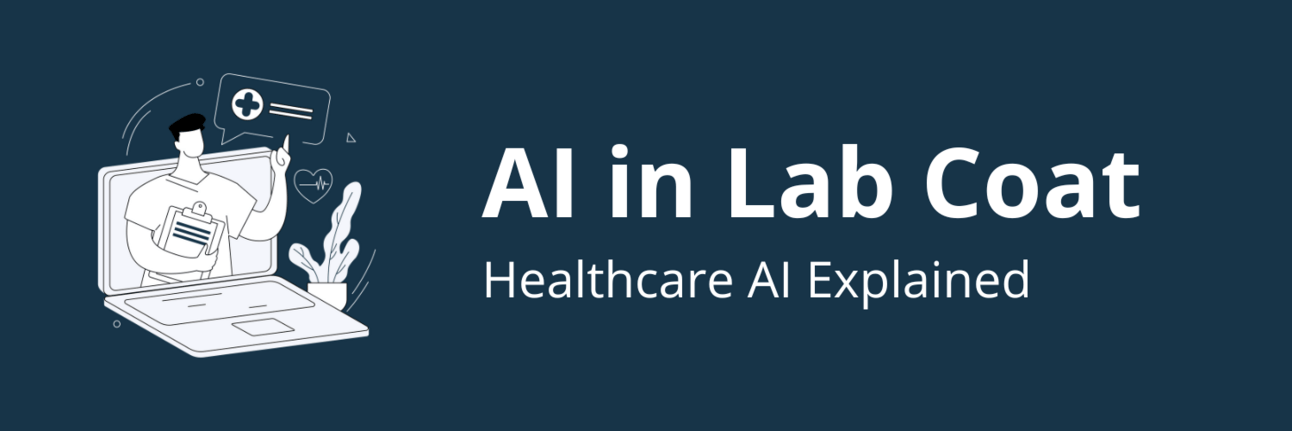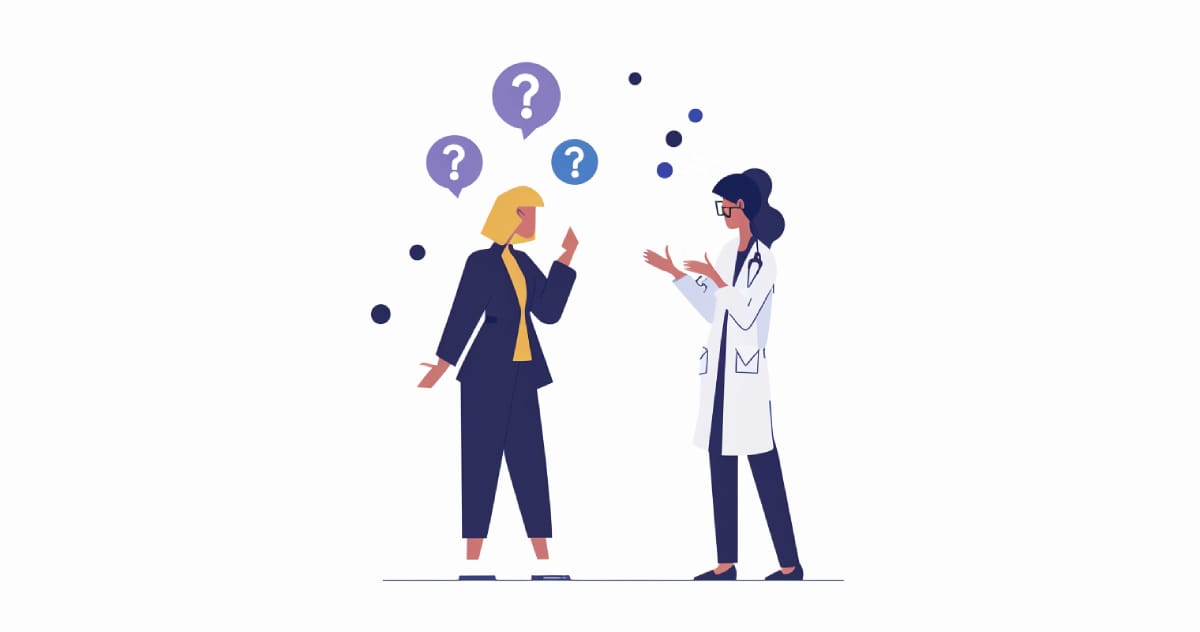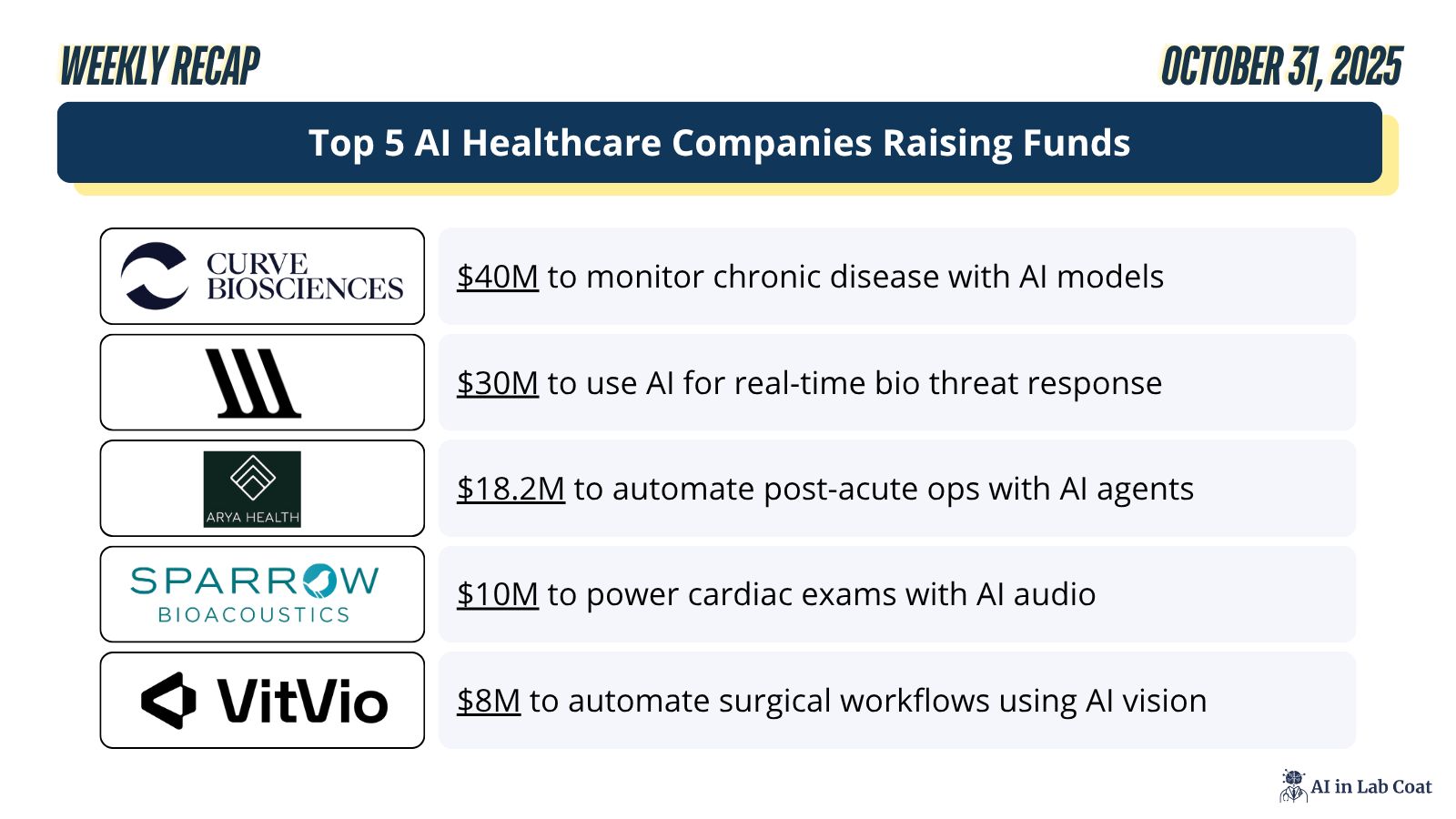
Happy Halloween! It’s October 31st.
Character.AI is banning users under 18 after lawsuits accused its chatbots of contributing to teen suicides. It’s a heartbreaking story, but also a warning about where we are with AI companionship. These models mimic empathy without understanding it, and that illusion can be dangerous when someone is vulnerable.
AI companionship fills our younger generation’s biggest gap… loneliness, but we haven’t figured out how to make it safe. Until we do, it’s hard to say we’re ready for this kind of intimacy with code.
Our picks for the week:
Featured Research: AI Matches Human Diabetes Coaching
Perspective: Doctors Using AI Lose Peer Respect
Read Time: 3 minutes
FEATURED RESEARCH
New Study Finds AI App as Effective as Human Coaches for Prediabetes Prevention

Prediabetes affects nearly 100 million adults in the United States. Lifestyle coaching can cut the risk of developing diabetes by more than half, yet most people never join or complete those programs.
Accessibility, cost, and just general daily distractions all get in the way. A new JAMA study now suggests that AI could help.
The trial: Researchers followed 368 adults with prediabetes and excess weight for a year. Half joined a human-led Diabetes Prevention Program (DPP), delivered remotely by trained coaches.
The other half used a fully automated mobile app powered by reinforcement learning, which adjusted its messages and reminders based on each user’s habits and progress.
The results: After 12 months, both groups performed almost identically. About 32% in each group met the CDC’s benchmark for risk reduction, losing at least 5% of body weight, improving blood sugar, or boosting activity levels.
Engagement was higher with AI: 93% started the program and 64% finished, compared with 83% and 50% for the coach-led version.
Why it matters: Prediabetes is a slow-burning public health crisis, and the human-led DPP (though effective) is difficult to scale. This trial shows that a fully automated digital program can match human outcomes while keeping more people engaged.
This system was NOT a chatbot or virtual therapist. It used data patterns, not conversation, to send timely nudges about meals, movement, and weigh-ins. No adverse events were reported, but researchers note the trial included motivated volunteers and short-term measures.
If the results hold in larger populations, AI-based prevention could help turn the hardest part of lifestyle change, staying consistent, into something that could be a bit more manageable.
For more details: Full Article
Brain Booster
According to industry estimates, about how much candy do Americans buy each year just for Halloween?
Select the right answer! (See explanation below and source)
What Caught My Eye
PERSPECTIVE
Doctors Who Rely on Generative AI Are Seen as Less Skilled, According to Johns Hopkins Study
A new study from Johns Hopkins found that doctors who rely on generative AI for medical decisions are seen as less competent by their peers. The experiment, involving 276 clinicians, showed that when physicians used AI as their primary decision-making tool, their peers rated them lower in skill, competence, and overall quality of care.
Even when AI was framed as a verification tool, the bias persisted. Doctors who didn’t use AI at all were viewed the most favorably. The findings reveal a powerful stigma inside hospitals: trust the tech, lose credibility.
Researchers say this perception could slow AI adoption in healthcare, even when the tools improve accuracy and efficiency. “AI is already unmistakably part of medicine,” said co-author Tinglong Dai. “What surprised us is that doctors who use it can be perceived as less capable.”
Until culture catches up, human psychology may be the real obstacle to better care.
For more details: Full Article
Top Funded Startups

Byte-Sized Break
📢 Other Happenings in Healthcare AI
Eli Lilly has partnered with Nvidia to build an AI supercomputer that will accelerate drug discovery and development by enabling large-scale model training and secure data-sharing with biotech partners, aiming to bring medicines to market faster. [Link]
India's Qure.ai received CE Mark approval for its AI-powered chest X-ray tool, qXR, making it the first cleared in Europe to screen for tuberculosis in children aged 0-3. [Link]
A new bipartisan bill, the GUARD Act, would ban minors from using AI chatbots in the U.S., requiring strict age verification and criminalizing bots that encourage self-harm or inappropriate behavior, following concerns about chatbots' psychological influence on youth. [Link]
Have a Great Weekend!

❤️ Help us create something you'll love—tell us what matters!
💬 We read all of your replies, comments, and questions.
👉 See you all next week! - Bauris
Trivia Answer: C. 600 million pounds
According to estimates from the American Institute for Cancer Research (AICR) and other market sources, Americans purchase roughly 600 million pounds of candy for Halloween every year, that’s about 24 pounds per household! Total spending tops $3 billion, making Halloween one of the sweetest (and most sugar-filled) holidays of the year. [Source]


